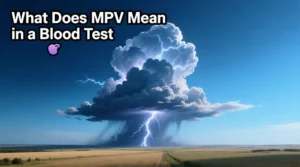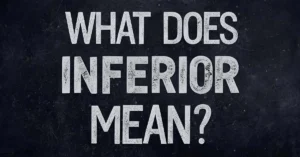Ever been scrolling through a text or social media post and saw the word unremarkable and thought, “Wait… is that a compliment or an insult?” 😅 You’re not alone!
This word pops up in everyday chats, reviews, and even casual social media posts. Understanding it can save you from awkward moments or confusion.
Quick Answer: Unremarkable means “not particularly special or noteworthy.” It’s a neutral/casual way of saying something is ordinary or average.
🧠 What Does Unremarkable Mean in Text?
In simple terms, unremarkable describes something that doesn’t stand out — neither good nor bad, just plain or ordinary.
Example:
- “The movie was okay, but honestly, pretty unremarkable.”
In short: Unremarkable = Not special = Ordinary or average ✅
📱 Where Is Unremarkable Commonly Used?
Unremarkable isn’t slang, but it’s commonly used online and in texts to describe experiences, things, or people without being harsh.
- Texting: casual updates about events or movies 📱
- Social media: reviews, comments, or thread replies 💬
- Messaging apps: group chats with friends or coworkers 💻
Tone: Casual, neutral, and slightly formal depending on context. Not flirty or playful.
💬 Examples of Unremarkable in Conversation
Here are some realistic examples of how people might use unremarkable in text:
- A: “How was the dinner last night?”
B: “Honestly, unremarkable. Nothing special 😐” - A: “Did you like the new album?”
B: “It’s unremarkable, tbh. Not bad, not amazing 🎵” - A: “Thoughts on the meeting?”
B: “Unremarkable. Just the usual updates 💼” - A: “How’s the new phone?”
B: “Pretty unremarkable, same features as before 📱” - A: “Your weekend trip?”
B: “Unremarkable. Just stayed home and chilled 🏠”
🕓 When to Use and When Not to Use Unremarkable
✅ When to Use:
- Friendly chats
- Casual social media comments
- Neutral reviews
❌ When Not to Use:
- Formal emails
- Urgent or sensitive topics
- Situations needing enthusiasm or encouragement
Comparison Table:
| Context | Example Phrase | Why It Works |
|---|---|---|
| Friend Chat | “The movie was unremarkable 😐” | Casual & neutral |
| Work Chat | “The presentation was unremarkable” | Polite & factual |
| “The report’s findings were unremarkable” | Formal & descriptive |
🔄 Similar Words or Alternatives
| Word/Slang | Meaning | When to Use |
|---|---|---|
| Average | Ordinary, not special | Casual or reviews |
| Meh | Indifferent or unimpressed | Informal texting or social media |
| Mediocre | Slightly below expectations | Work chats, critiques |
| Ordinary | Normal, not outstanding | Neutral conversations |
| So-so | Neither good nor bad | Texting friends casually |
❓ FAQs :About Unremarkable
Q1: Is unremarkable an insult?
A: Not necessarily. It’s neutral. It just means something isn’t outstanding or notable.
Q2: Can I use unremarkable in texts?
A: Yes! Especially in casual chats or online reviews.
Q3: Is it formal or casual?
A: It’s versatile. Neutral in tone; works casual or slightly formal.
Q4: Can unremarkable describe a person?
A: Yes, but it might sound impolite if used directly about someone.
Q5: Any slang version of unremarkable?
A: Informal alternatives include meh, so-so, or average.
Conclusion
Unremarkable is a handy word to describe things that are ordinary, c, or neutral. Whether you’re texting friends, posting a casual review, or commenting on social media, knowing how and when to use it keeps your message clear and appropriate. Just remember: it’s neutral — not good, not bad, just… unremarkable 😄

Jane Austen was an English novelist renowned for her keen observations of 18th- and 19th-century society, her witty storytelling, and her timeless novels like Pride and Prejudice and Sense and Sensibility. Her work blends romance, humor, and social commentary in a way that still resonates today. At jokesplanets.com, we celebrate her cleverness and charm by sharing quotes, fun facts, and witty insights inspired by her legendary storytelling.



